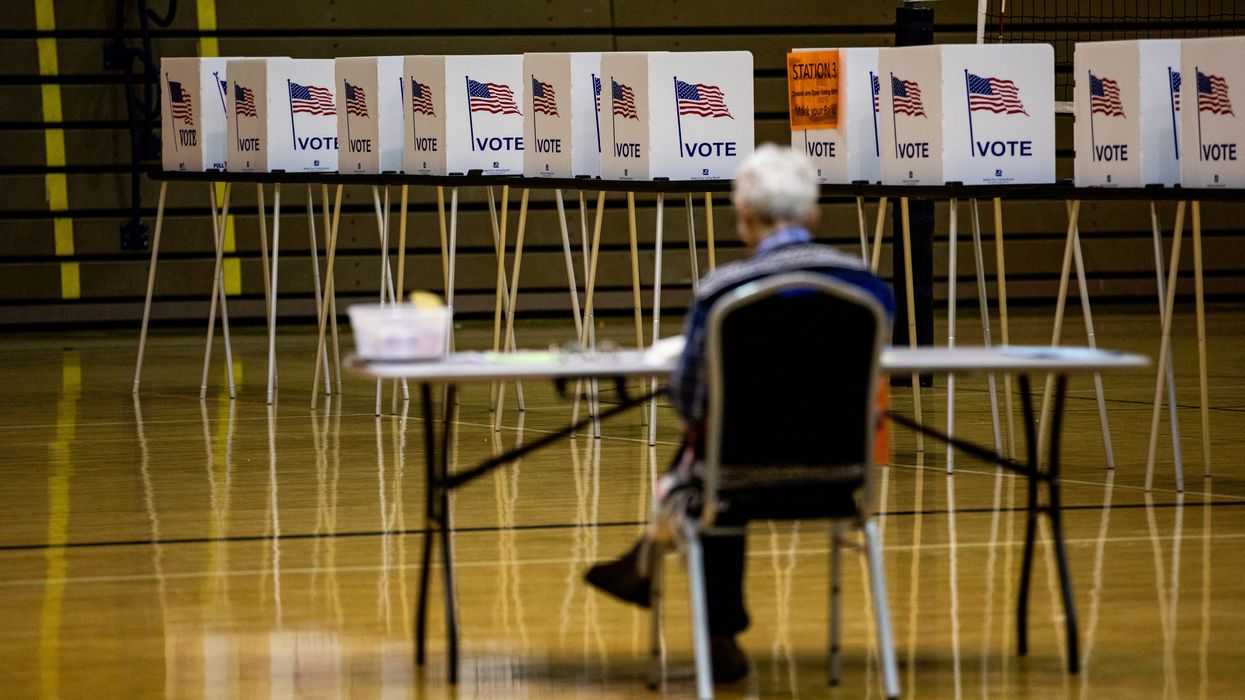Meyers is executive editor of The Fulcrum.
There are 435 voting members of the House of Representatives. But few of those districts — 55, to be exact — will be decided on Election Day, according to new data from the nonprofit organization Unite America. That’s because the vast majority of races were effectively decided during the primaries.
The research data goes deep into what Unite America calls the “Primary Problem,” in which few Americans are determining winners of House elections.
According to UA, 87 percent of House seats are “safe,” meaning they are noncompetitive and considered a lock to be one by the dominant political party. Voters still get to cast ballots in the general elections for those districts, but the candidates, the political operatives and the media already know how things will turn out because partisan gerrymandering has effectively guaranteed the outcomes.
“In November, blue districts will stay blue and red districts will stay red,” UA states in its analysis.
But gerrymandering only tells part of the story. For a variety of reasons, few people participate in primaries. In fact, according to UA, only 7 percent of voting age Americans cast ballots in those 380 safe-seat primaries.
“These numbers speak to the despair many Americans have that their vote does not seem to matter,” said Unite America Executive Director Nick Troiano.
The research identified three factors leading to such low participation numbers: closed primaries, uncompetitive primaries and lack of interest.
Many states allow only people who are registered with a political party to vote in partisan primaries, even though the elections are state-funded and -operated. This year, 17.6 million people were not permitted to vote in decisive primaries across 15 states that have closed primaries.
Some states allow voters to participate in primaries even if they are not registered with a party. And four states have eliminated separate, partisan primaries in favor of single-ballot primaries in which all candidates run together. Alaska, California, Louisiana and Washington each have a version of an all-candidate primary, with variations on the number of candidates who advance to the general election.
UA found that in those four states, 29 percent of House seats will be decided in November — triple the percentage of races in states with partisan primaries.
Troiano and Unite America identified a “record number” of 2024 ballot initiatives that would create open primaries in more states. Voters in Arizona, Colorado, Idaho, Montana, Nevada and South Dakota will determine whether to move to open, all-candidate primaries when they cast ballots this fall.
In addition, people in Ohio will vote on whether to establish an independent redistricting commission, which would take mapping out of politicians’ hands. Recent polling indicates the proposal will pass. Currently, nine states use independent redistricting for congressional maps and 10 use them for state legislative redistricting.
“We have an opportunity to usher in a new era of politics where all voters’ voices matter and where our leaders represent a true majority — not just the 7 percent who determine party primaries,” Troiano said.
Among those voters eligible to participate in primaries, many saw ballots with only one candidate running for the dominant party’s nomination (169 out of 380 safe seats).
“In other words, nearly 40% of Congress was effectively elected without having to earn a single vote — leaving 101,486,410 voters (39% of eligible Americans) without a meaningful choice in who represents them,” the report states.
This is the third election cycle in which Unite America has studied these issues, and the “primary problem” is growing.
In 2020, 10 percent of eligible voters effectively elected 83 percent of House members, and in 2022, just 8 percent chose 83 percent, according to UA.. This is happening at a time when more and more Americans are declaring themselves to be independent of political parties.




















